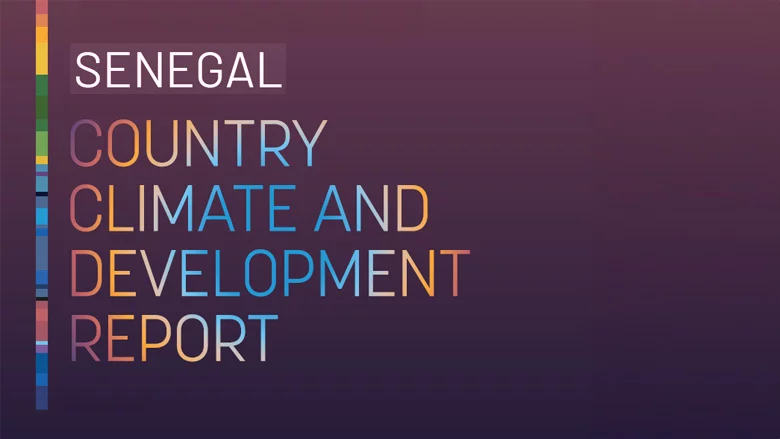World bank urges Senegal to prioritize climate action to prevent GDP decline

A new World Bank report has called on Senegal to intensify its climate action to avert a potential 10% drop in GDP by 2050. Released on Tuesday, the “Country Climate and Development Report” (CCDR) emphasizes the need for Senegal to place climate resilience at the forefront of its development strategy to achieve its goal of becoming an upper-middle-income country.
World Bank experts suggest that shifting toward a green economy could mitigate climate impacts while boosting economic growth and reducing poverty.
The report warns that, without climate adaptation, Senegal’s GDP could shrink by an estimated 9.4% by 2050.
By strengthening climate action, however, Senegal could reverse this trend and create new opportunities for its vulnerable communities.
“Climate action is more than a response to environmental challenges; it’s an investment in Senegal’s prosperity and resilience,” stated Keiko Miwa, World Bank Director of Operations for Senegal.
To reach these objectives, the report recommends annual investments of $1.36 billion through 2030, followed by $530 million per year from 2031 to 2050.
These efforts could help boost Senegal’s GDP by 2% and reduce climate-related poverty by 40% by 2030.
The report also advises prioritizing renewable energy development and sustainable transport infrastructure, such as Dakar’s electric Bus Rapid Transit (BRT) system.
These initiatives are expected to cut greenhouse gas emissions, improve air quality, and create local employment opportunities.
Coastal Resilience and Climate-Smart Agriculture
Building coastal resilience, crucial for communities in vulnerable areas, and adopting climate-smart agricultural practices are also key priorities to ensure food security and diversify the rural economy.
The report highlights the importance of vocational training and social protection, especially for youth and women, to enhance resilience against climate impacts.
The World Bank further emphasizes the essential role of the private sector, which is expected to contribute approximately 40% of the required financing.
Olivier Buyoya, Regional Director of the International Finance Corporation (IFC) for West Africa, suggested solutions such as green bonds and tax incentives to attract private investment in resilient infrastructure.
The World Bank urges strategic reforms and coordinated efforts to fund Senegal’s climate transition.
By embracing this vision, Senegal could establish a resilient and robust economy aligned with its Vision 2050 for a sustainable and prosperous future, the report concludes.
About The Author
dailymailafric
I am an avid African news observer, and an active member of Daily Mail Africa.
I’m Passionate about staying informed on diverse topics across the continent,
I actively contribute to publishing on political, economic and cultural developments in Africa.



